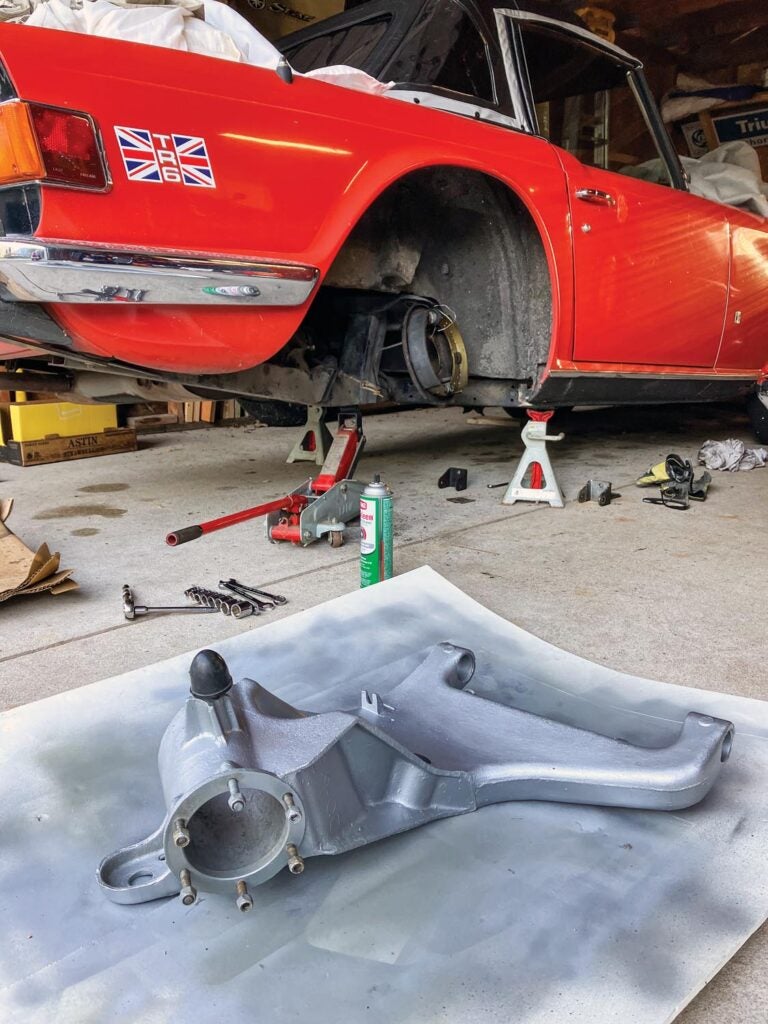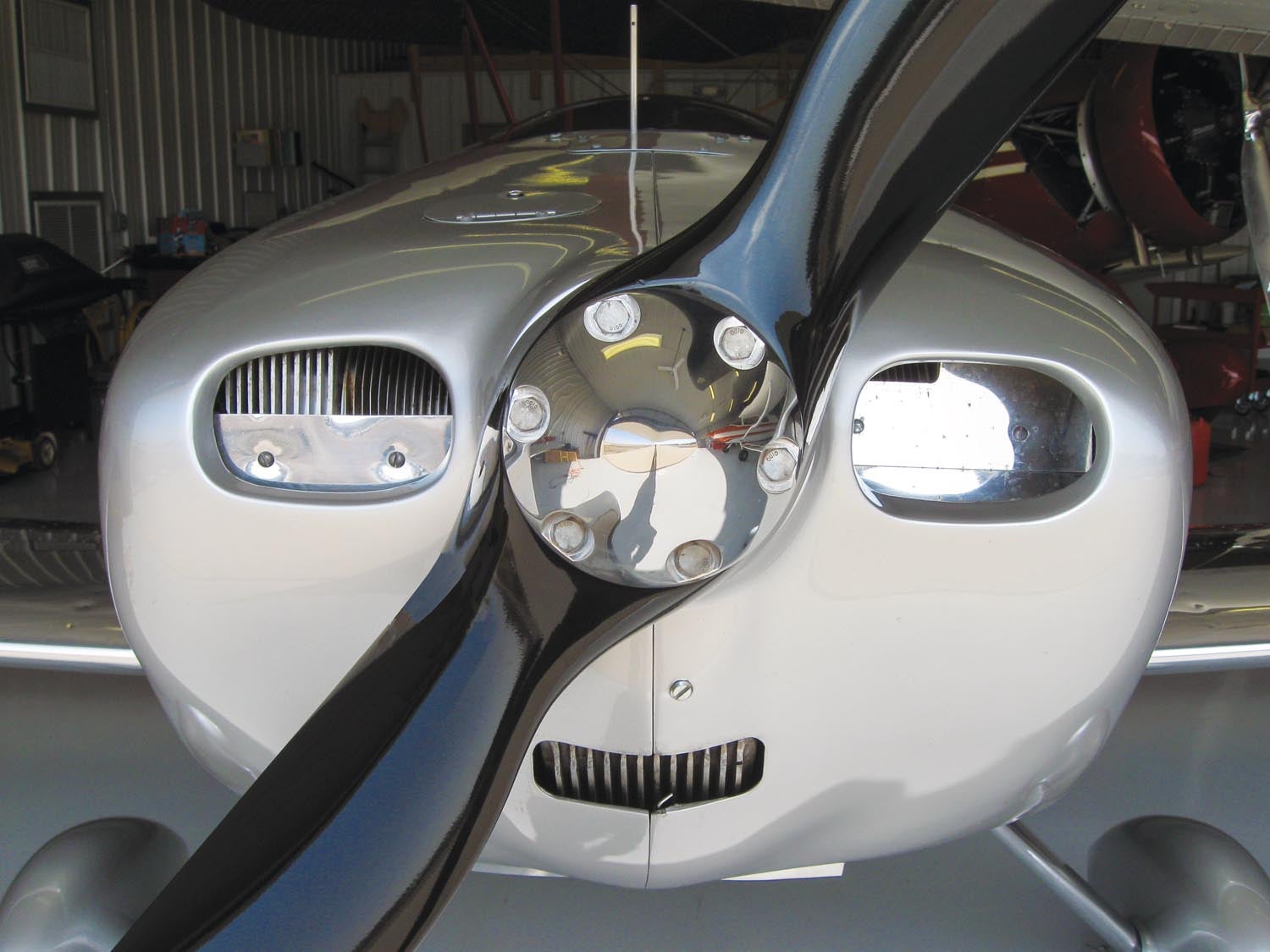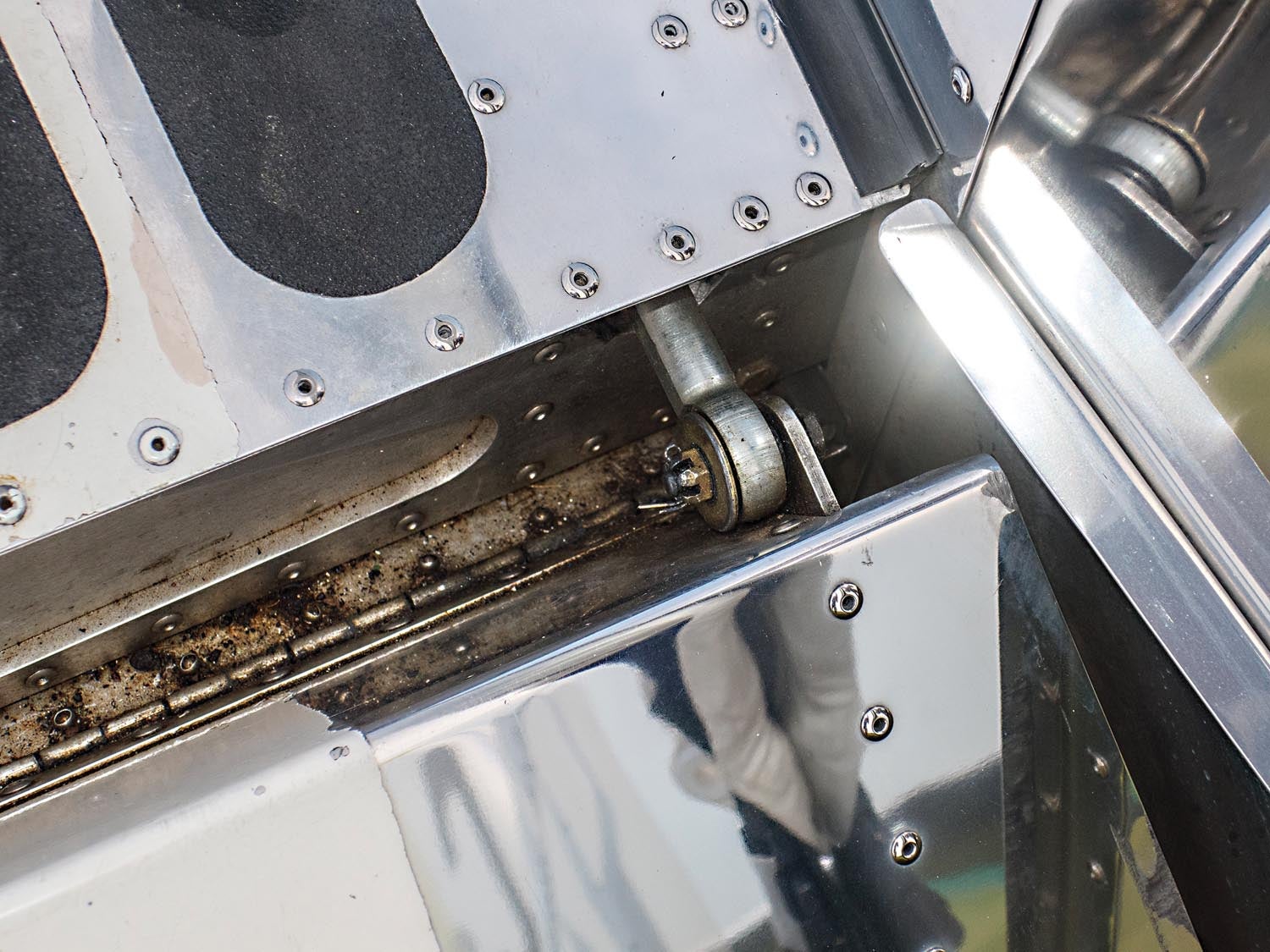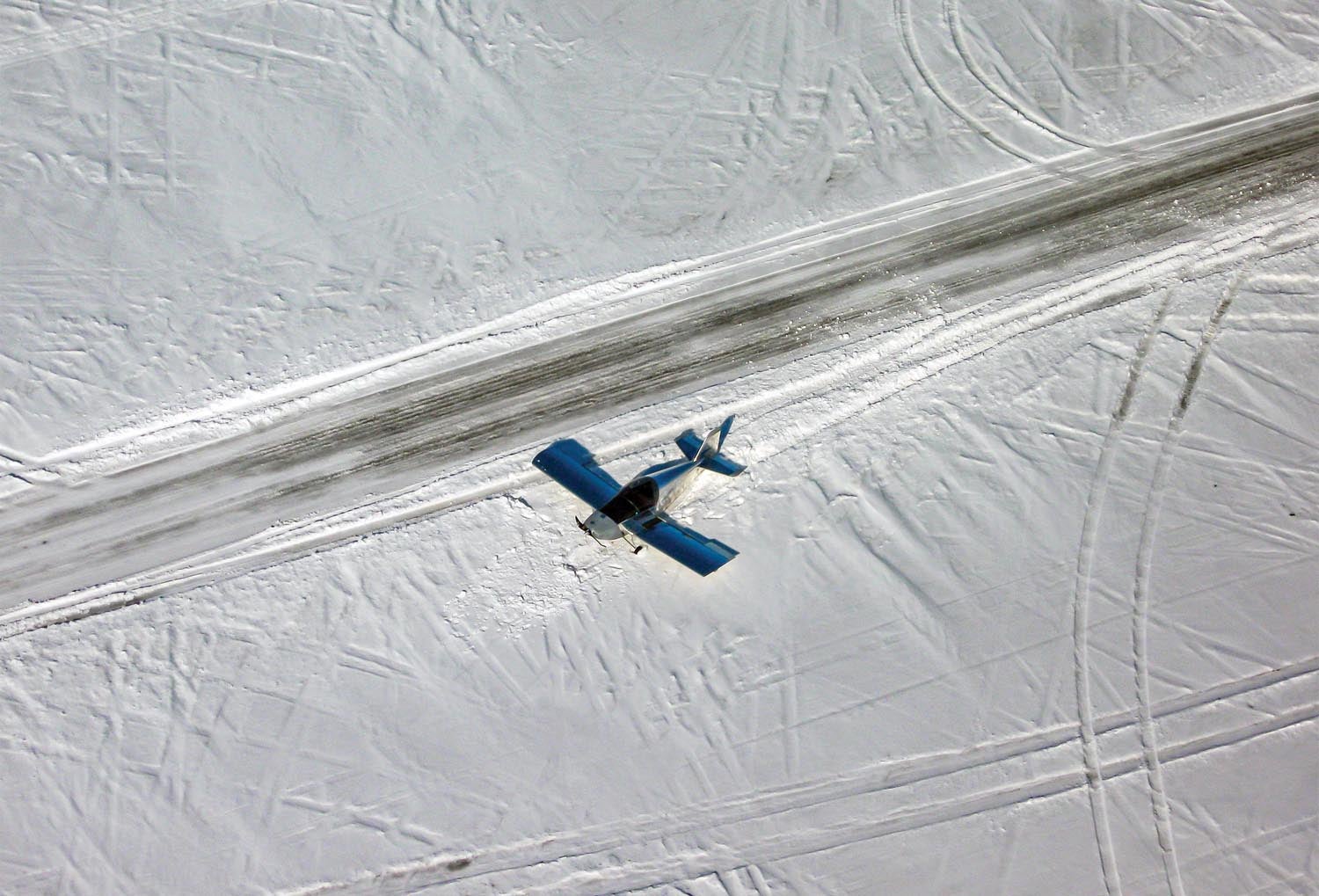
Ahhh, putzing about. Is there anything more satisfying? Of course there is. Thousands of things, I’m sure. But like an ointment on an itch, putzing about is sometimes what’s needed. Dare I say, sometimes putzing is the only thing that will do? For those who aren’t familiar with the term, putzing is defined as an inconsequential activity. Used in conversation, it may sound like this:
“Whatcha do t’day?”
“I putzed around my hangar. Wha’ju do today?’
“I putzed around my yard. It was a good day for it.”
“It was. Got my screwdrivers organized by tip style and weeded out duplicate combination wrenches. Feels good.”
“Yah, I picked the decorative rocks out of the grass and tossed them back into the landscaping.”
“Wanna beer?”
Inconsequential? I think not! I find putzing about to be quite consequential. Given a choice between sitting in front of the TV or putzing about, I’ll choose flying every time.
A Putz Comes To Be
Putzes cannot be planned. That is an unbending rule. They can, however, be conjured. On any given day there are multiple putzes waiting for you. You only need to be in the right state of mind and in the right location to recognize one. A putz comes to be when you have the urge to do something but you don’t know what. Here’s an example: You want to be in your hangar but you don’t want to work on your airplane because, at that moment, working on your airplane sounds like, well, work. Cleaning the hangar also sounds like work. But something drew you there, where you now stand with your hands stuffed in your front pockets surveying the scene for nothing in particular. Then your eyes catch a disheveled pile of plans and you begin collating it into some semblance of order. It’s something to do while you figure out what to do. That’s a putz. You’re putzing. Ride that wave as far as it will take you.
A putz can also be triggered by an urge to not do something. Let’s call this the replacement putz. The replacement putz occurs when an unplanned task gets substituted for a planned task. I’ve perfected the replacement putz. It gets me out of recurring chores like vacuuming, mowing the lawn or clearing my couch of the most recent laundry dump. There’s often irony in the replacement putz. For instance, this past fall I wanted to clean my basement but needed to be outside in the warm air and sunshine before they both went south for the winter. Beyond needing to be outside, I had no agenda. After a bit of aimless poking around in my garage I found myself on top of my garage, putzing my way through cleaning the gutters. Had cleaning the gutters been planned for the day, I may have putzed my way through cleaning the house instead, to avoid the miserable task of cleaning the gutters. Putzes are both wondrous and mysterious.

Welcome a Putz Into Your Shop
When I built Metal Illness—and my reader will recall mentions of this in previous columns—I took a year to fit and finish my cowling. (I’m particular.) That wasn’t a year of continuous, focused effort. That was a year of putzing about while my primary building efforts were focused elsewhere. There were days I‘d step into my garage and lose my ambition to, oh, I dunno, route more wires or polish the seat pan. So I’d stand there (hands in pockets) wondering what to do. Thirty minutes later I’d find myself 25 minutes into filling pinholes in the cowl. The effort was likely triggered by seeing the tube of spot putty and deciding it was something I could do “real quick” while I decided what to do. It was a putz, pure and simple. I putzed my way through fitting and finishing the entire cowl.
Putzing in the shop doesn’t have to directly involve your project. However, any effort exerted toward improving your shop can benefit your project. Examples include organizing a tool bin, sweeping up, throwing away the empty energy-drink cans, moving an overhead light to a more useful location, discarding dry and damaged markers, turning a scrap of wood into a drill-bit caddy and so much more. Remember, however, if you plan those projects in advance it’s not a genuine putz, it’s a to-do list. Which brings me to another characteristic of a putz; a putz (almost) never requires running to a store for parts or supplies. Putzes make do with what’s on hand.

Putzing in the Air
Putzing isn’t confined to the ground. I’ve done more than my share of putzing in the air. I bet the majority of my flight time could be logged as putzing, if such a column existed in The Standard Pilot Logbook. (At 6 feet and 170 pounds, I’m about as standard as pilots come.) Every time I launched into the air without a predefined mission or destination I was putzing—and so are you. Something compels us to fly. There’s no telling what, so fly we do. (Why take chances on what that “something” might be?) Because the nature of flight prohibits us from running errands or stopping for a drink, we’ve got to keep moving while we figure out a flight’s purpose—excuse me while I write this—on the fly. A $100 hamburger flight is not a putz. It’s intentional. Unless you’re airborne when the idea comes to you. That’s a putz.
Let’s pretend we’re playing Let’s Pretend. As you cross the perimeter fence on climb-out you realize you haven’t given any thought to where to go or what to do. At the same moment you feel a breeze on your leg—maybe because you’re not focused on where to go or what to do—and you begin waving your throttle hand around to identify the draft’s source so you can seal it before winter. That’s a putz. Maybe you realize the headset wires are always in the way of the GPS so you begin noodling a better location for the jacks. That’s a putz. To quote a friend, “Good on you!” To quote another friend, “Are you done with my drill press?”

Even the critical Phase I flight test period can include moments of flying for the pure joy of flying. Imagine buying an old British sports car for fun summer drives, but every outing is spent diagnosing clunks, odors and “Why the hell does the horn blow when I turn the steering wheel right?” How long would that be fun? (So far, just over 40 years.)
To keep things fun during the Phase I flight test period, take moments between airspeed calibration runs to gaze out at the wings while picturing the invisible forces holding you aloft in a machine you built. It may be in one of those moments you notice the left aileron is flying high. That tunes you into the position of the joystick, which you notice is offset slightly left though you are flying level. You’ve just putzed your way into identifying a rigging issue to correct. Good on you.
Putzing is an inconsequential activity? I think not. I find tremendous value in putzing about. Putzing has a way of sparking action on mundane tasks, advancing stalled projects and highlighting unseen needs so they can be addressed to the lasting betterment of your shop, your airplane or your psyche. Never under-estimate what a putz can achieve.














The late motorcycle technical editor John Robinson had a saying , ” A little bit of knowledge is not a bad thing , it is downright dangerous” .
As an over eager youth I never quite understood his saying until in later years I could look back with the hindsight of experience at my stupid errors in the past .
So it is with putzing , the secret to good putzing is to have the knowledge to realise what is possible with ones technical abilities and what isn’t and not to venture into the dangerous zone .
Having said that , a good portion of my business is repairing failed putzing , so I really shouldn’t complain .
AH. Now I understand. The fine art of goofing off.
Great stuff, Kerry!!! Some of my happiest moments in retirement occur during Putzing About sessions at my hangar. The best thing there? Somehow the putzing in my hangar FEELS like it’s really important and worthy activity. You know, it smacks of ” … improved vigilance for assuring the longevity of my aircraft and safer skies for all…” Or somesuch other lofty goals. Hangin’ out has never been such fun!
To quote a Murphey’s law;
If you fiddle with something, you can get it to work. But if you futz with it too long you’ll break it.!
Reading this article was a great vindication and realization for me, that I am not alone! Especially reading about the “replacement putz.” I have done that so many times (and beat myself up about it). I’ve often wondered what is the cognitive mechanism that leads to repairing something else instead of what was planned. But it is often a happy occurrence because something still got done. And it feeds my psyche’s need to check something off my list, even if it wasn’t on my list to begin with! Ha ha. Great article. Keep them coming!